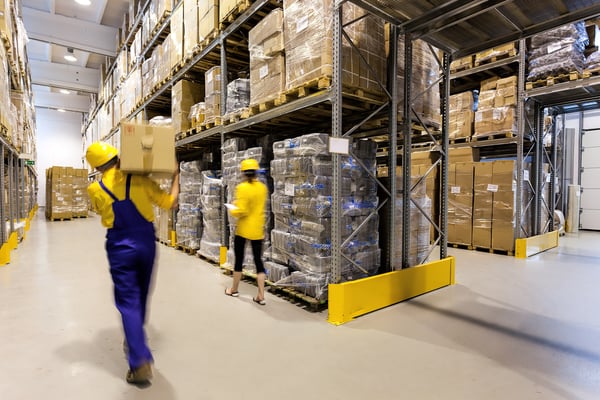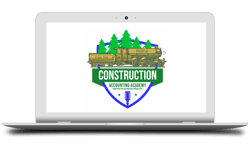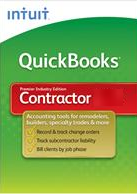Having a family-owned construction business in times of uncertainty, we spent many sleepless nights wondering how we were going to make payroll. Where would our next job come from? Would it be profitable, or would something terrible happen to cause us to go bankrupt?
If your company relies on material suppliers in various geographic locations, it's likely that at some point, your construction business will face a supply chain disruption. Whether that disturbance is caused by a virus, regulatory lockdown, international tensions, changes in local laws, or a natural disaster, there will probably be scenarios in which your suppliers or transporters face obstacles that affect your company.

Here are some steps you can take to respond to such situations and even prepare ahead of time for them.
1. Know your supply chain
An essential first step to any preventive or reactive plan is to know your supply chain. You and your team should know who and where in the world your suppliers are, where their suppliers are (if they have any), and any regional laws or international tensions that could affect your supply chain.
Knowing how long transportation of goods takes can help you anticipate when your suppliers' disruptions will affect you. For example, if you receive goods from abroad and manufacturing plants in that country have shut down, you might not be affected for a month or two. This gives you some time to review the situation and react based on your current inventory and your clients' needs.
2. Reach out to your suppliers
Find out how the delays or issues affect your suppliers and how they plan to address the case. If they don't already have a plan in place—or if there isn't anything they can do about the situation—you may need to take action on your own, such as finding new suppliers, sourcing new products, or planning new transport routes.
Reaching out to your suppliers can also help you more effectively manage any customers or clients waiting for goods from you. The more information you have, the better equipped you are to make decisions about your current status and how your construction business will operate through the disruption, or whether you need to slow down or shut down.
3. Plan ahead
Have contingency plans in place and set parameters for when the contingencies will be activated. If the disruption is likely to slow down the delivery of goods but not stop it, place urgent orders ahead of time—even a month or two in advance of when you usually would.
If there is a chance your suppliers can't get you the items you need, determine if another source can be found, albeit a temporary one.
Even if you aren't currently affected by a supply chain disruption, knowing the alternatives available to you, how quickly they can respond, and their cost provides you with a level of protection in the case of a risk to your supply chain.
Set guidelines for when you'll turn to your alternate arrangements. If you wait too long, other companies could have already reached out to your alternatives, leaving you with no options.
Final Thoughts
If possible, diversify your parties. It may cost a bit more, but you're less vulnerable to disruptions if your suppliers exist in different areas. There are many issues out of your control that can affect your supply chain. It's vital that you have a plan in place so you can respond to such scenarios and keep your business operational.
Over the years, I came to understand that the Universe has everything under control, and in the end, everything works out for the best. So if anything has not worked out for the best, it is not the end.
Get in touch with us if you have a question about your construction business. We are here to help you navigate the changes during this challenging time.
About The Author:
 Sharie DeHart, QPA is the co-founder of Business Consulting And Accounting in Lynnwood, Washington. She is the leading expert in managing outsourced construction bookkeeping and accounting services companies and cash management accounting for small construction companies across the USA. She encourages Contractors and Construction Company Owners to stay current on their tax obligations and offers insights on how to manage the remaining cash flow to operate and grow their construction company sales and profits so they can put more money in the bank. Call 1-800-361-1770 or sharie@fasteasyaccounting.com
Sharie DeHart, QPA is the co-founder of Business Consulting And Accounting in Lynnwood, Washington. She is the leading expert in managing outsourced construction bookkeeping and accounting services companies and cash management accounting for small construction companies across the USA. She encourages Contractors and Construction Company Owners to stay current on their tax obligations and offers insights on how to manage the remaining cash flow to operate and grow their construction company sales and profits so they can put more money in the bank. Call 1-800-361-1770 or sharie@fasteasyaccounting.com
Access Code: FEAHEROS
Click here to download the App on Android:
Click here to download the App on iOS:
Simply scan the QR code or search for ‘MyAccountants’ in the App Store and enter the Access code: FEAHEROS to utilize the powerful App features and capabilities, and benefit from having our Construction Accounting App at your fingertips, 24/7."
PS: Even if you are not a Construction Contractor you will find a plenty of benefits in the app so we invite you to download it too! It's Free so why not?

![]() Sharie DeHart, QPA is the co-founder of Business Consulting And Accounting in Lynnwood, Washington. She is the leading expert in managing outsourced construction bookkeeping and accounting services companies and cash management accounting for small construction companies across the USA. She encourages Contractors and Construction Company Owners to stay current on their tax obligations and offers insights on how to manage the remaining cash flow to operate and grow their construction company sales and profits so they can put more money in the bank. Call 1-800-361-1770 or sharie@fasteasyaccounting.com
Sharie DeHart, QPA is the co-founder of Business Consulting And Accounting in Lynnwood, Washington. She is the leading expert in managing outsourced construction bookkeeping and accounting services companies and cash management accounting for small construction companies across the USA. She encourages Contractors and Construction Company Owners to stay current on their tax obligations and offers insights on how to manage the remaining cash flow to operate and grow their construction company sales and profits so they can put more money in the bank. Call 1-800-361-1770 or sharie@fasteasyaccounting.com
































